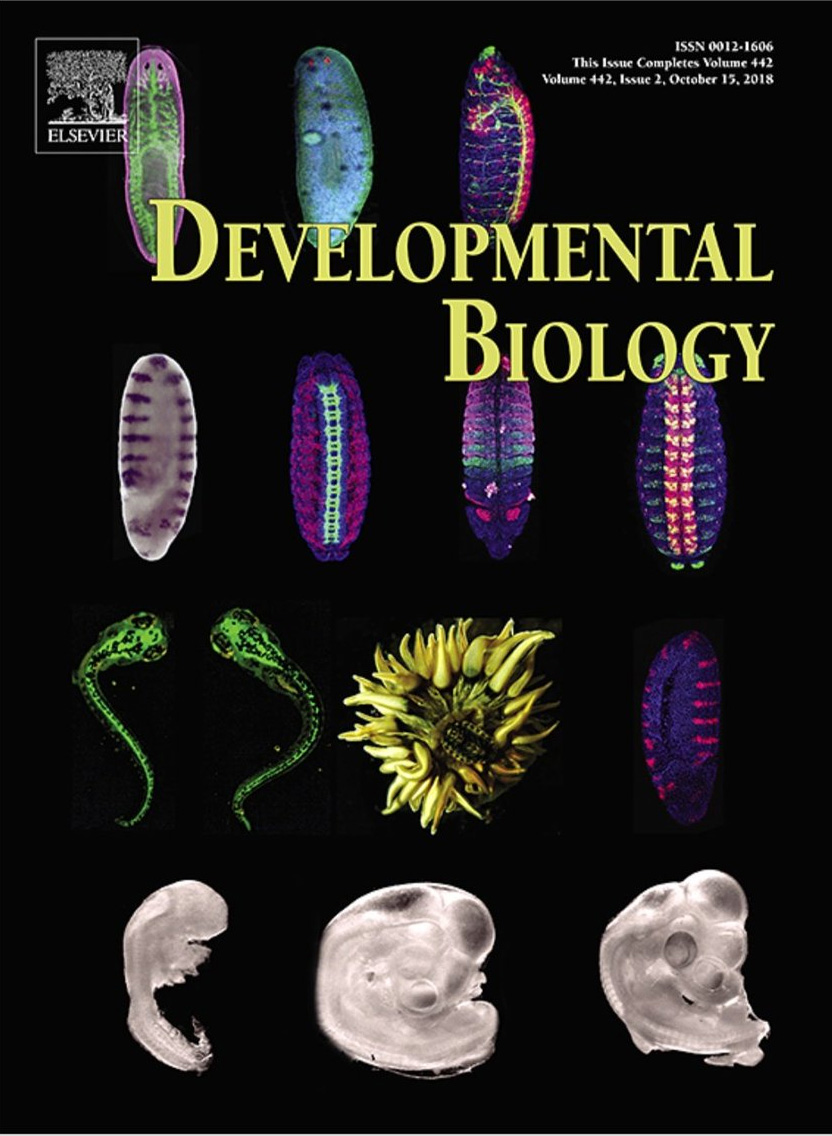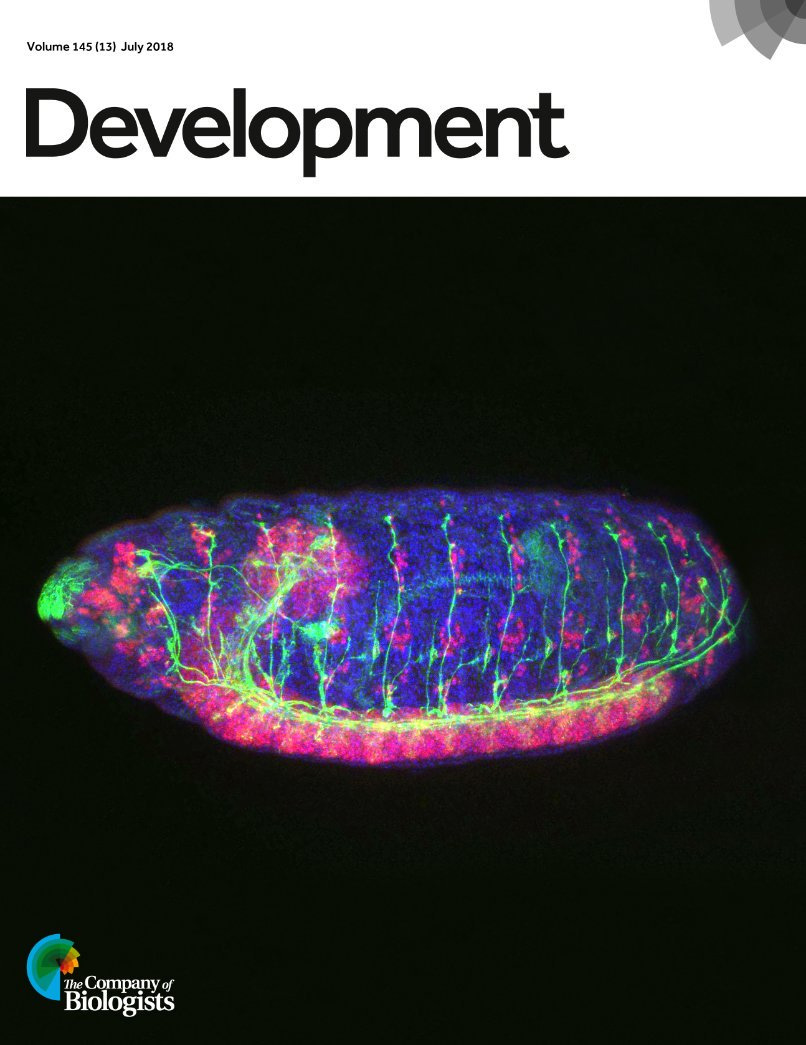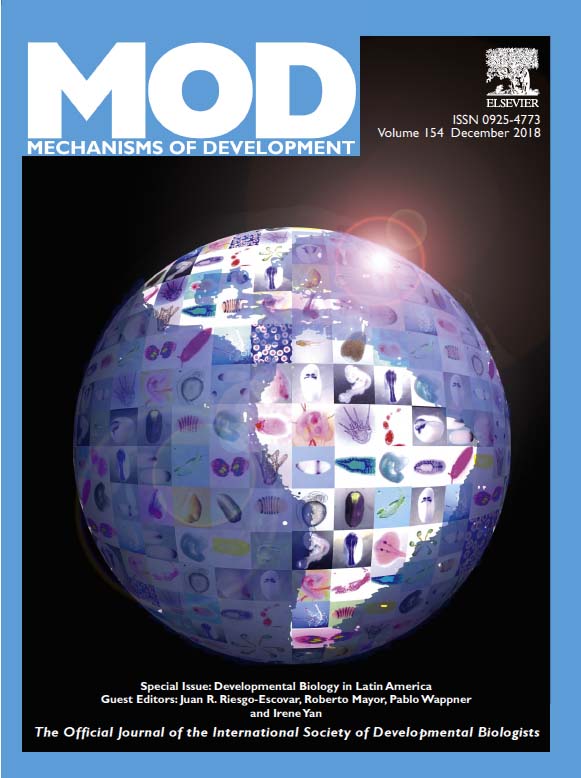Faculty
FACULTY
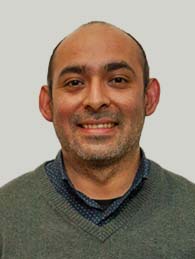 Felipe Aguilera, marine biologist from the University of Valparaíso with doctoral studies at the University of Queensland (Australia). He did a postdoctoral stay in Australia and then went to the Sars Center at the University of Bergen in Norway for his second postdoctoral stay. In 2017, a PAI Insertion contest was awarded at the Conicyt Academy, and in 2018 it joined the Department of Biochemistry and Molecular Biology of the University of Concepción to carry out undergraduate and postgraduate research and teaching in the areas of omics sciences, bioinformatics, and evolution.
Felipe Aguilera, marine biologist from the University of Valparaíso with doctoral studies at the University of Queensland (Australia). He did a postdoctoral stay in Australia and then went to the Sars Center at the University of Bergen in Norway for his second postdoctoral stay. In 2017, a PAI Insertion contest was awarded at the Conicyt Academy, and in 2018 it joined the Department of Biochemistry and Molecular Biology of the University of Concepción to carry out undergraduate and postgraduate research and teaching in the areas of omics sciences, bioinformatics, and evolution.
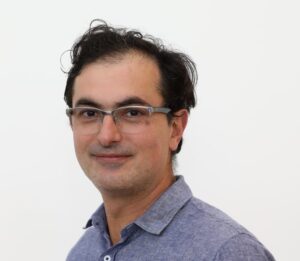 Joao Botelho is Assistant Professor at the Pontificia Universidad Catolica de Chile. He studied Biology and Philosophy at the Federal University of Santa Catarina in Brazil and, subsequently, carried out doctoral studies at the University of Chile and postdoctoral internships at the universities of Auckland, in New Zealand, and Yale, in the USA. He is interested in animal diversity in its various areas: embryonic, morphological, evolutionary and paleontological. He investigates how the development of the musculoskeletal, vascular and neural systems influence each other, and how this interaction results in the emergence of biological diversity. To address these questions, we used chicken embryos as an experimental model and embryos from other bird, mammal, and reptile species for comparative analysis.
Joao Botelho is Assistant Professor at the Pontificia Universidad Catolica de Chile. He studied Biology and Philosophy at the Federal University of Santa Catarina in Brazil and, subsequently, carried out doctoral studies at the University of Chile and postdoctoral internships at the universities of Auckland, in New Zealand, and Yale, in the USA. He is interested in animal diversity in its various areas: embryonic, morphological, evolutionary and paleontological. He investigates how the development of the musculoskeletal, vascular and neural systems influence each other, and how this interaction results in the emergence of biological diversity. To address these questions, we used chicken embryos as an experimental model and embryos from other bird, mammal, and reptile species for comparative analysis.
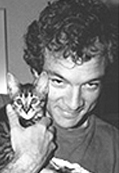
John Ewer, U. Valparaiso, Chile. His laboratory uses molecular and genetic approaches to study the regulation of behavior and physiology by neuropeptides using the fruit fly, Drosophila melanogaster. Insect growth and development occurs through multiple stages. At the end of each stage insects molt to produce a new cuticle for the next stage. During this process, the new cuticle develops beneath the old one, while much of the old cuticle is resorbed. The final, vital, step of this developmental process is ecdysis, the shedding of the remaining old cuticle. This behavior is of biological interest because its smooth execution is critical to the insect’s survival, and failures at ecdysis are rapidly and invariably fatal. He got his Ph.D. from Brandeis University and worked at Cornell University. He moved to Universidad de Valparaiso, Chile in 2006, to be part of the Centro de Neurociencia de Valparaíso and the Centro Milenio Genómica de la Célula.
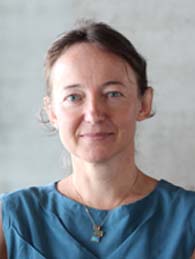 Anne Grapin-Botton was born on July 1, 1967 in La Rochelle, France. She studied biology at the UPMC University Pierre and Marie Curie (Paris VI) and completed her MSc there in 1991 and received her PhD in Molecular and Cellular Pharmacology in 1995. She carried out postdoctoral work in Harvard University (Cambridge, USA) where she developed interest in endoderm and pancreas development. In 2001, she started her lab on Pancreas Development and Cancer at the ISREC (Swiss Institute for Experimental Cancer Research) and then EPFL (Ecole Polytechnique Fédérale de Lausanne, Switzerland). In 2012, she became professor of Developmental Biology at the Danish Stem Cell Center of the University of Copenhagen. In August 2018, Anne Grapin-Botton joined the team of Directors at the MPI-CBG and researches self-organization of cells into organ communities. Anne Grapin-Botton is the recipient of several awards and grants including, a Human Frontiers Science Program (HFSP) Long Term Fellowship.
Anne Grapin-Botton was born on July 1, 1967 in La Rochelle, France. She studied biology at the UPMC University Pierre and Marie Curie (Paris VI) and completed her MSc there in 1991 and received her PhD in Molecular and Cellular Pharmacology in 1995. She carried out postdoctoral work in Harvard University (Cambridge, USA) where she developed interest in endoderm and pancreas development. In 2001, she started her lab on Pancreas Development and Cancer at the ISREC (Swiss Institute for Experimental Cancer Research) and then EPFL (Ecole Polytechnique Fédérale de Lausanne, Switzerland). In 2012, she became professor of Developmental Biology at the Danish Stem Cell Center of the University of Copenhagen. In August 2018, Anne Grapin-Botton joined the team of Directors at the MPI-CBG and researches self-organization of cells into organ communities. Anne Grapin-Botton is the recipient of several awards and grants including, a Human Frontiers Science Program (HFSP) Long Term Fellowship.
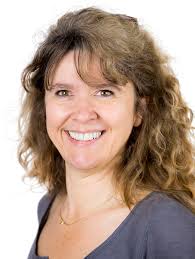 Corinne Houart established her original research niche and gained international visibility during her postdoctoral training, identifying the anterior neural border as a key organizer required for forebrain regionalization and showing that specification of forebrain regions takes place at neural plate stage. These findings, published in Nature, changed our understanding of forebrain development, demonstrating the importance of early decisions in this process. Over the past 15 years, Prof Houart’s group has become an international expert in the molecular and cellular mechanisms that drive zebrafish forebrain development and the mechanisms underlying vertebrate brain regionalisation. Her group has recently successfully embarked in identifying similarities and divergences between zebrafish and mouse early forebrain regionalization. Moreover, in the last 5 years, Prof Houart has pioneered the use of genome editing in zebrafish and devoted part of our research effort in understanding motor neurodegeneration. They key contributions so far are: 1) Identification of the ANB organizer in zebrafish and mouse, 2) identification of the Wnt/Bcatenin pathway as a key regulator of early forebrain regionalisaton 3) Demonstration of the role of the Wnt antagonist Dkk1 in cell motility, via a Wnt/cateninindependent route. 4) Identification of the complex interplay between transcription factors and signals in i) telencephalic arealisation (Foxg1/Wnt) and ii) telencephalon vs eye fate decisions (Rx3/BMP); 5) Identification of BMP as functional target in spastic paraplegia; and 6) Uncovering of non-nuclear function of RNA splicing factors in motor development and degeneration.
Corinne Houart established her original research niche and gained international visibility during her postdoctoral training, identifying the anterior neural border as a key organizer required for forebrain regionalization and showing that specification of forebrain regions takes place at neural plate stage. These findings, published in Nature, changed our understanding of forebrain development, demonstrating the importance of early decisions in this process. Over the past 15 years, Prof Houart’s group has become an international expert in the molecular and cellular mechanisms that drive zebrafish forebrain development and the mechanisms underlying vertebrate brain regionalisation. Her group has recently successfully embarked in identifying similarities and divergences between zebrafish and mouse early forebrain regionalization. Moreover, in the last 5 years, Prof Houart has pioneered the use of genome editing in zebrafish and devoted part of our research effort in understanding motor neurodegeneration. They key contributions so far are: 1) Identification of the ANB organizer in zebrafish and mouse, 2) identification of the Wnt/Bcatenin pathway as a key regulator of early forebrain regionalisaton 3) Demonstration of the role of the Wnt antagonist Dkk1 in cell motility, via a Wnt/cateninindependent route. 4) Identification of the complex interplay between transcription factors and signals in i) telencephalic arealisation (Foxg1/Wnt) and ii) telencephalon vs eye fate decisions (Rx3/BMP); 5) Identification of BMP as functional target in spastic paraplegia; and 6) Uncovering of non-nuclear function of RNA splicing factors in motor development and degeneration.
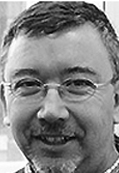 Roberto Mayor, University College London, UK. The primary aim of his research group is to elucidate the mechanism that underlies the development of the Neural Crest. He would like to know how Neural Crest cells acquire their identity within the ectoderm and how their migration and differentiation is controlled. He study neural crest development in zebrafish and frog ( Xenopus laevis) embryos as these two animal models offer several complementary advantages.
Roberto Mayor, University College London, UK. The primary aim of his research group is to elucidate the mechanism that underlies the development of the Neural Crest. He would like to know how Neural Crest cells acquire their identity within the ectoderm and how their migration and differentiation is controlled. He study neural crest development in zebrafish and frog ( Xenopus laevis) embryos as these two animal models offer several complementary advantages.
He is a Professor of Developmental and Cellular Neurobiology at University College London. He was named International Scholar of the Howard Hughes Medical Institute. He is a member of the editorial board of Development, Developmental Biology, Mechanisms of Development and Developmental Dynamics and Associate Editor of the International Journal of Developmental Biology and BMP Developmental Biology. He was founder and president of the Latin American Society of Developmental Biology (LASDB).
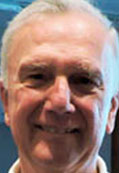 David R. McClay is Arthur S. Pearse Professor of Biology in Trinity College of Arts and Sciences Duke University, Durham, NC. McClay earned his Bachelor’s degree in zoology at Penn State University in 1963 and his Master’s degree in zoology at the University of Vermont in 1965. McClay graduated from University of North Carolina, Chapel Hill in 1971 and headed to the University of Chicago to do a postdoc with Aron A. Moscona. There, he began working on cell adhesion in chick and mouse embryos and later he moved to Duke University to become a faculty member in the Department of Zoology. He works on sea urchin development. He received the 2016 Society for Developmental Biology Lifetime Achievement Award for his outstanding and sustained research and mentoring contributions to the field of developmental biology.
David R. McClay is Arthur S. Pearse Professor of Biology in Trinity College of Arts and Sciences Duke University, Durham, NC. McClay earned his Bachelor’s degree in zoology at Penn State University in 1963 and his Master’s degree in zoology at the University of Vermont in 1965. McClay graduated from University of North Carolina, Chapel Hill in 1971 and headed to the University of Chicago to do a postdoc with Aron A. Moscona. There, he began working on cell adhesion in chick and mouse embryos and later he moved to Duke University to become a faculty member in the Department of Zoology. He works on sea urchin development. He received the 2016 Society for Developmental Biology Lifetime Achievement Award for his outstanding and sustained research and mentoring contributions to the field of developmental biology.
 Angela Nieto is full Professor and Head of the Developmental Neurobiology Unit at Instituto de Neurociencias (CSIC-UMH) in Alicante, Spain. She obtained her PhD in 1987 (Universidad Autónoma, Madrid). After a postodoctoral stay at the Institute for Biomedical research in Madrid where she studied programmed cell death in lymphocytes, she moved to the National Institute for Medical Research in London where she worked with David Wilkinson and isolated a number of genes involved in the morphogenesis of the nervous system. In 1993, she obtained a position of Staff Scientist at the Cajal Institute (CSIC) in Madrid. From then on, she has led a research group interested in cell movements and adhesion in the early vertebrate embryo. Main contribution: the concept of reactivation of developmental programs in adult pathologies including cancer, fibrosis and defects in bone development and mineralization. Elected member of EMBO (2000) and of Academia Europaea (2009). She currently is the President of the International Society for Developmental Biology, member of the Board of Directors of the International Society of Differentiation and Spanish delegate and Vice-chair at the European Conference and European Laboratory of Molecular Biology (EMBC and EMBL, respectively).
Angela Nieto is full Professor and Head of the Developmental Neurobiology Unit at Instituto de Neurociencias (CSIC-UMH) in Alicante, Spain. She obtained her PhD in 1987 (Universidad Autónoma, Madrid). After a postodoctoral stay at the Institute for Biomedical research in Madrid where she studied programmed cell death in lymphocytes, she moved to the National Institute for Medical Research in London where she worked with David Wilkinson and isolated a number of genes involved in the morphogenesis of the nervous system. In 1993, she obtained a position of Staff Scientist at the Cajal Institute (CSIC) in Madrid. From then on, she has led a research group interested in cell movements and adhesion in the early vertebrate embryo. Main contribution: the concept of reactivation of developmental programs in adult pathologies including cancer, fibrosis and defects in bone development and mineralization. Elected member of EMBO (2000) and of Academia Europaea (2009). She currently is the President of the International Society for Developmental Biology, member of the Board of Directors of the International Society of Differentiation and Spanish delegate and Vice-chair at the European Conference and European Laboratory of Molecular Biology (EMBC and EMBL, respectively).
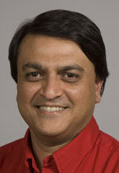 Nipam Patel is Director of the Marine Biological Laboratory (MBL) and a Professor at the University of Chicago. He received his A.B. degree in biology from Princeton University and his Ph.D. degree in biology from Stanford University.
Nipam Patel is Director of the Marine Biological Laboratory (MBL) and a Professor at the University of Chicago. He received his A.B. degree in biology from Princeton University and his Ph.D. degree in biology from Stanford University.
He was a staff associate in the Department of Embryology at the Carnegie Institution. He was named a fellow of the American Association for the Advancement of Science and he is a Howard Hughes Medical Institute Investigator.
His research program centers on the study of the evolution of development mechanisms with a focus on the genes that regulate segmentation and regionalization of the body plan.
He is particularly interested in understanding how certain steps in patterns formation that require protein diffusion in Drosophila are accomplished in those insects and crustaceans in which cellularization of the growing embryos would seem to preclude formation of gradients by diffusion.
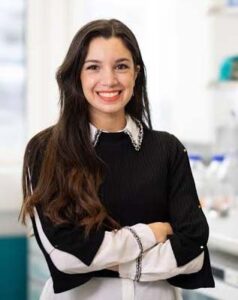 Nicoletta Petridou is Assistant Professor at the European Molecular Biology Laboratory (EMBL) in Heidelberg, Germany. She did her PhD at the University of Cyprus and was Postdoctoral research at IST Austria, to become a Project leader “Elise Richter” fellow at IST Austria, and a Group leader at EMBL from December 2020. She received the GfE Hilde Mangold Early Career Award 2022 from the German Society of Developmental Biologists. Nicoletta Petridou aims to understand how complexity emerges during early embryo development, focusing on the role of critical points and transitions in tissue morphogenesis.
Nicoletta Petridou is Assistant Professor at the European Molecular Biology Laboratory (EMBL) in Heidelberg, Germany. She did her PhD at the University of Cyprus and was Postdoctoral research at IST Austria, to become a Project leader “Elise Richter” fellow at IST Austria, and a Group leader at EMBL from December 2020. She received the GfE Hilde Mangold Early Career Award 2022 from the German Society of Developmental Biologists. Nicoletta Petridou aims to understand how complexity emerges during early embryo development, focusing on the role of critical points and transitions in tissue morphogenesis.
 Marcos Simoes-Costas is an Associate Professor in the Department of Systems Biology and the Department of Pathology at Harvard Medical School. After completing his Ph.D. at the University of Sao Paulo, he moved to the California Institute of Technology (CALTECH) as a Pew Latin American Fellow. His postdoctoral training focused on the gene regulatory networks that drive the formation and differentiation of neural crest cells. After starting his laboratory at Cornell University in 2016, Marcos moved to Harvard Medical School, where his team studies the spatial control of gene expression during embryonic development.
Marcos Simoes-Costas is an Associate Professor in the Department of Systems Biology and the Department of Pathology at Harvard Medical School. After completing his Ph.D. at the University of Sao Paulo, he moved to the California Institute of Technology (CALTECH) as a Pew Latin American Fellow. His postdoctoral training focused on the gene regulatory networks that drive the formation and differentiation of neural crest cells. After starting his laboratory at Cornell University in 2016, Marcos moved to Harvard Medical School, where his team studies the spatial control of gene expression during embryonic development.
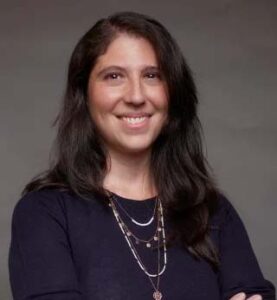 Paula Slater is an Assistant Professor at Universidad San Sebastian, Chile. She studied biochemistry at the Pontifical Catholic University of Chile. She completed his doctorate in Cellular and Molecular Biology in the same University, studying the corticotropin-releasing system. After completing his doctorate, he completed two postdocs: the first at Boston College in Boston, studying the role of the cytoskeleton in axonal guidance, and the second at the Pontificia Universidad Católica de Chile, studying mitochondrial function in spinal cord regeneration. She uses the Xenopus laevis model to study neuronal development, as well as neuronal and spinal cord regeneration.
Paula Slater is an Assistant Professor at Universidad San Sebastian, Chile. She studied biochemistry at the Pontifical Catholic University of Chile. She completed his doctorate in Cellular and Molecular Biology in the same University, studying the corticotropin-releasing system. After completing his doctorate, he completed two postdocs: the first at Boston College in Boston, studying the role of the cytoskeleton in axonal guidance, and the second at the Pontificia Universidad Católica de Chile, studying mitochondrial function in spinal cord regeneration. She uses the Xenopus laevis model to study neuronal development, as well as neuronal and spinal cord regeneration.
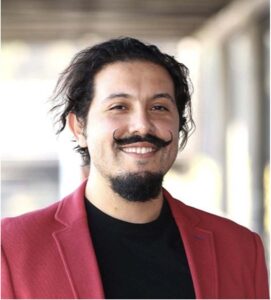 Leonardo Valdivia is Associate Professor of Universidad Mayor, Chile, and he belong to the Centre of Integrative Biology (CIB) from the same university. Leonardo Valdivia graduated in Biology and obtained a PhD in Cellular, Molecular Biology and Neurosciences, from the University of Chile. Additionally, he was a postdoctoral researcher at University College London before joining the CIB in August 2017. His research focuses on the genetic control of tissue growth and differentiation in the zebrafish eye.
Leonardo Valdivia is Associate Professor of Universidad Mayor, Chile, and he belong to the Centre of Integrative Biology (CIB) from the same university. Leonardo Valdivia graduated in Biology and obtained a PhD in Cellular, Molecular Biology and Neurosciences, from the University of Chile. Additionally, he was a postdoctoral researcher at University College London before joining the CIB in August 2017. His research focuses on the genetic control of tissue growth and differentiation in the zebrafish eye.





